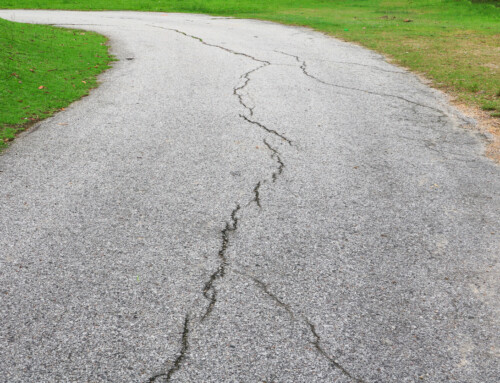
A new asphalt driveway is an excellent investment that boosts curb appeal, provides durability, and adds value to your home. However, to ensure you get the best results from your investment, it’s crucial to treat the surface with care, especially during the initial curing period. Knowing how long to stay off your new asphalt driveway can mean the difference between a long-lasting, smooth surface and a damaged one that requires premature repairs.
By understanding a few simple guidelines, you can keep your driveway in pristine condition for years to come.
Why Is Curing Time Important for Asphalt Driveways?
Curing is the process where asphalt fully hardens and reaches its maximum strength. While asphalt driveways may appear solid shortly after installation, they require time to fully cure. During this period, the surface remains soft and susceptible to damage from weight or objects.
Typically, it takes 24 to 72 hours for the asphalt to be dry enough for foot traffic and light vehicle use. Full curing, however, can take 6 to 12 months, depending on weather conditions and the grade of asphalt used. By respecting the curing period, you can prevent surface scuffing, indentations, and premature wear.
Key Factors Influencing Curing Time:
- Weather conditions: Warm temperatures speed up the curing process, while cooler temperatures slow it down.
- Thickness of the layer: Thicker asphalt takes longer to cure compared to thinner layers.
- Type of asphalt mix: Premium or specialty mixes may have different curing timelines.
Best Practices for Using Your Asphalt Driveway
Here are some dos and don’ts to protect your investment during its curing phase.
Dos:
- Wait before parking: Avoid parking vehicles on the driveway for at least 3 to 7 days after installation. This prevents tire marks and depressions.
- Walk lightly: Walking is generally safe after 1 to 2 days, but try to avoid dragging heavy objects or wearing high heels on the new surface.
- Keep it clean: Remove debris like leaves or branches to prevent staining or uneven curing.
Don’ts:
- Don’t park heavy vehicles: Avoid parking trucks, vans, or RVs on the asphalt during the first month.
- Avoid sharp turns: Turning steering wheels sharply while the vehicle is stationary can cause surface scuffing.
- Avoid chemical spills: Gasoline, oil, or solvents can damage new asphalt, so avoid spilling these substances.
Following these practices ensures your new driveway remains smooth and free of damage as it cures.
Frequently Asked Questions About Residential Asphalt Paving
How can I maintain my asphalt driveway long-term?
To maintain your asphalt driveway, clean it regularly to remove debris and dirt that can degrade the surface. Sealcoating every 1 to 3 years provides added protection against the elements, spills, and wear and tear. Inspect and repair cracks or potholes promptly to prevent further damage.
Is asphalt a good option for cold climates?
Yes, asphalt performs exceptionally well in cold climates. It expands and contracts with temperature changes, reducing the chance of cracking. Additionally, asphalt’s dark color absorbs heat, making it quicker to melt snow and ice during the winter months.
Take Better Care of Your Asphalt
Treating your new asphalt driveway with care during its curing period is essential for ensuring its durability and performance. Whether you’re preparing for a new installation or need maintenance tips, proper care leads to long-term value for your property.
At TopWest Asphalt Ltd., we specialize in residential asphalt paving that enhances curb appeal and durability. Our trusted team serves Vancouver, Surrey, Abbotsford, and surrounding areas. For quality paving services, contact us online or call us at 604-755-0300 today.





